Weardale farmhouse moved and recreated at Beamish museum
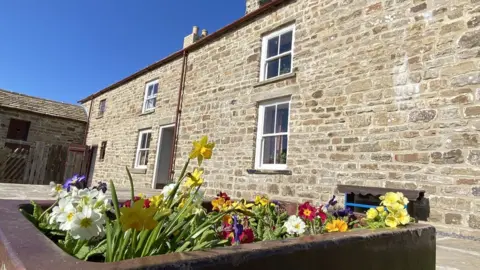 Beamish Museum
Beamish MuseumA farmhouse which was dismantled and moved stone-by-stone across County Durham to a new home at an outdoor museum has opened to the public.
Spain's Field Farm, originally in Eastgate, has now been rebuilt as part of the 1950s town at Beamish museum.
The house, which features furniture from the period, showcases life on a typical upland farm at that time.
The recreation team worked with relatives of those who had lived there and described it as a "labour of love".
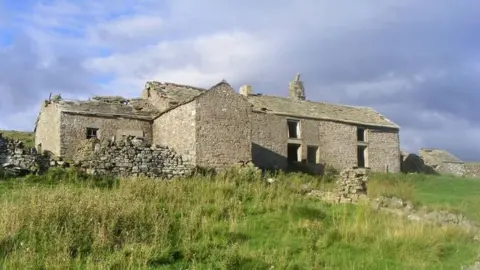 Beamish Museum
Beamish MuseumThe farmhouse had not been lived in since the 1950s, although some of the outbuildings remained in use until the 1970s.
Following its donation to the museum by the Jopling family, dismantling work began in 2016, with about 1,170 tonnes of stone and timber transported to the new location.
The building was thoroughly recorded before being dismantled and among the objects discovered were a Georgian bread oven, fragments of 1950s Farmer's Weekly magazines, furniture and farm tools.
Beamish's team carefully rebuilt the farm and also worked with former occupants, the Raine family, and the Weardale community to gather stories and memories.
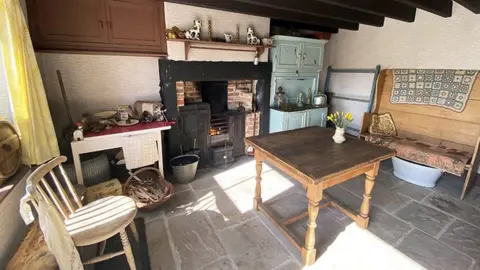 Beamish Museum
Beamish MuseumMary Forster - who was born a Raine - lived in the home until she got married and moved out in the 1940s and went on to lay the first stone of Spain's Field at Beamish at the age of 101.
She died in 2020, but her memories, and those of others from the local community, helped shape the stories the museum will tell at the farm.
The latest addition to the 1950s town was opened by Mrs Forster's daughter Yvonne, who often stayed at Spain's Field as a child.
She said: "It's a privilege to have the house rebuilt, it's a wonderful thought that Spain's Field is going to live on, my mum was absolutely thrilled.
"This now opens the door to generations of many more people who will have the opportunity to appreciate how these hardy and resilient people lived and worked in Weardale in the past."
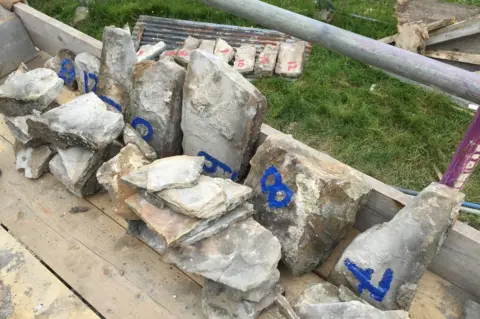 Beamish Museum
Beamish MuseumRhiannon Hiles, Beamish's chief executive, said: "Bringing the story of this farm and its location in the Durham Dales to the museum has been such a wonderful experience and a real labour of love.
"With its quirky features and wonky chimney pot, we hope that we have done this lovely farmstead justice in our recreation of a small piece of the dale."
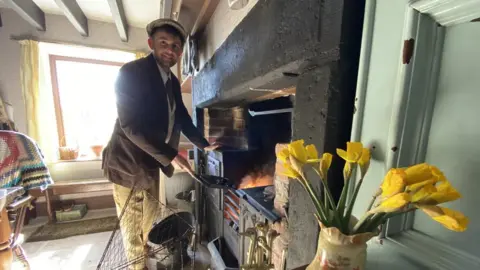 Beamish Museum
Beamish Museum
Follow BBC North East & Cumbria on Twitter, Facebook and Instagram. Send your story ideas to [email protected].
